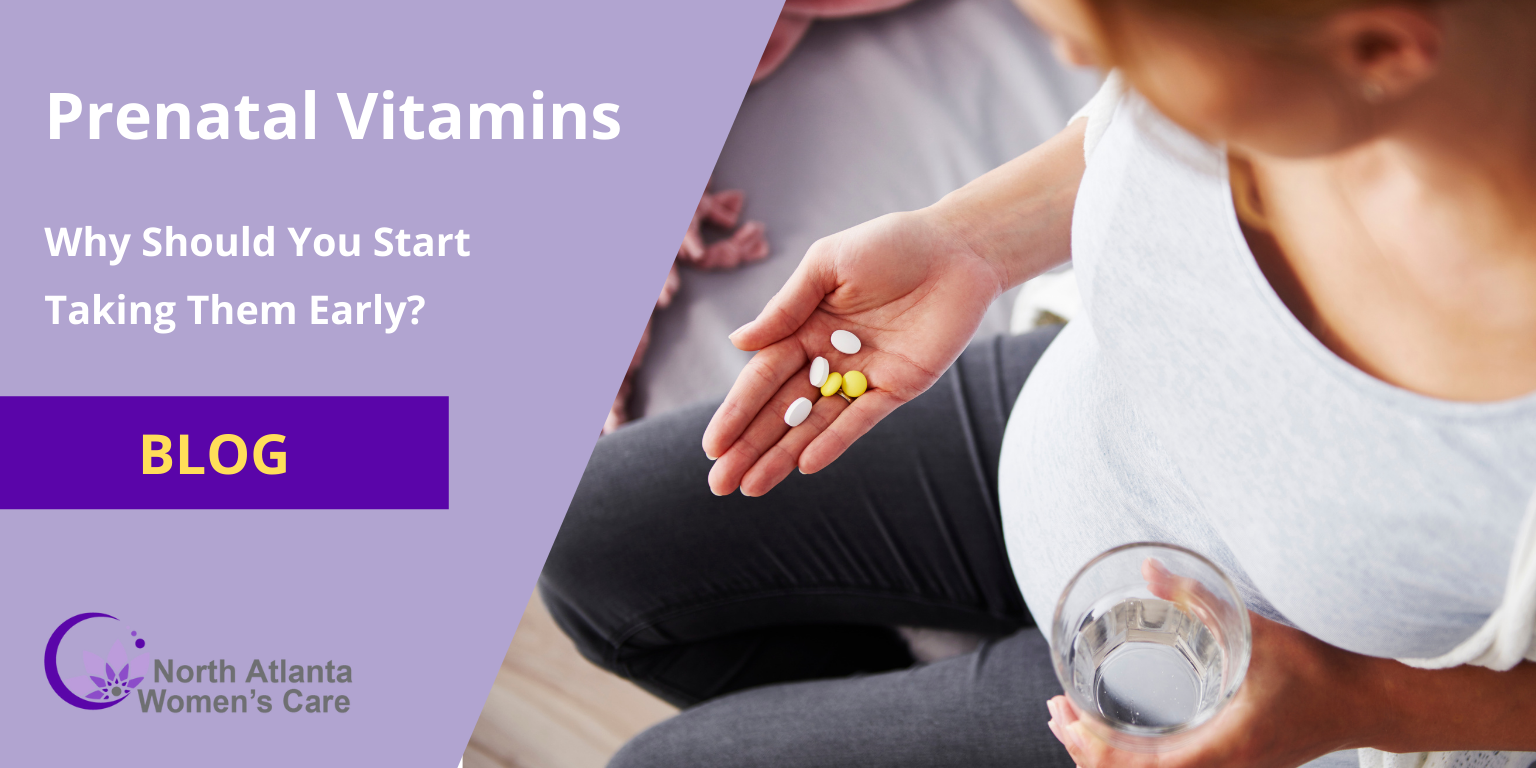Prenatal Vitamins: Why Should You Start Taking Them Early?

Prenatal vitamins are critical to supporting your baby’s growth and development and your own body’s changes. However, some prenatal vitamins can cause side effects, such as nausea and constipation. You should always consult your obstetrician/gynecologist before taking prenatal vitamins. They can suggest the best prenatal vitamins with the right dosage limits based on your nutritional needs.
When Should You Start Taking Prenatal Vitamins?
You should take prenatal vitamins:
1. When You Have Decided to Conceive
Once you decide to get pregnant, it is suggested to schedule a wellness visit with your gynecologist, quit smoking, and stop taking birth control pills. You should also start taking prenatal vitamins. It might take weeks or months to conceive, and sometimes, you may not know you are pregnant even after a few weeks of conception.
2. When You Are Pregnant
Prenatal vitamins aren’t just for when you are ready to conceive! If you were not taking prenatal vitamins and just found out you are pregnant, you should start taking them soon after testing positive for pregnancy. Your doctor will prescribe specific prenatal vitamins that work best for you.
Why Should You Take Prenatal Vitamins Before Pregnancy?
Here are a few reasons why you should take prenatal vitamins before pregnancy:
1. To Minimize Risk of Preterm Birth
Taking prenatal vitamins before conceiving reduces premature birth by about 50% among a group of 2000 women.
2. To Develop Healthy Eggs
It takes 90 days for your eggs to develop, beginning from the time they are pulled from the waiting pool to ovulation. Prenatal vitamins are essential to pull eggs and ensure healthy development.
3. To Balance Your Nutritional Needs
Taking prenatal vitamins is essential to achieve your optimal everyday intake of pre-pregnancy nutrients.
4. To Reduce Irregularities
Taking prenatal vitamins before pregnancy helps reduce irregularities, such as heart defects, cleft platelet, neural tube defects, and limb deformities.
Important Nutrients in Prenatal Vitamins
1. DHA (Docosahexaenoic Acid)
Prenatal vitamins contain DHA, an omega-3 fatty acid that helps develop your baby’s brain and eyes. It also improves cervical mucus quality (necessary for sperm to reach the egg) and egg quality and promotes an ideal balance of reproductive hormones.
2. Folate
Prenatal vitamins contain folate that supports the earliest and the most critical stages of fetal development. The baby’s neural tube (spine and brain) develops within the first month of pregnancy - a time when you may not know you are pregnant. However, if you have started taking prenatal vitamins before pregnancy, you can rest assured of the healthy development of your baby’s neural tube.
3. Vitamin D
Vitamin D in prenatal vitamins:
- Is essential for you and your baby’s bone development
- Lowers the risk of a first-trimester miscarriage
- Increases live birth rates in women undergoing fertility treatments
Some pregnant women do not get sufficient vitamin D, especially during winter. Taking prenatal vitamins will fulfill your vitamin D requirements.
4. Iron
You might need double the amount of iron during pregnancy. The iron in prenatal vitamins helps make hemoglobin (red blood cells’ oxygen-carrying component), ensuring oxygen flow to your organs and tissues. This helps prevent iron deficiency anemia, a common condition in early pregnancy. Whether you are a first-time mom or have had children before, taking prenatal vitamins is essential.
If you want to learn more about prenatal vitamins and need expert advice for your pregnancy, schedule an appointment with us at North Atlanta Women’s Care.
Comments are closed

